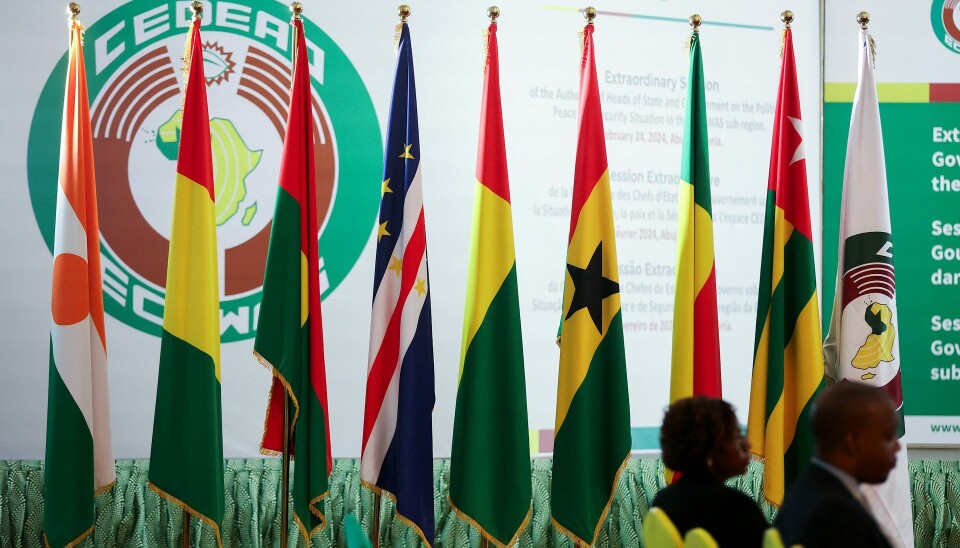Copyright : Re-publication of this article is authorised only in the following circumstances; the writer and Africa Legal are both recognised as the author and the website address www.africa-legal.com and original article link are back linked. Re-publication without both must be preauthorised by contacting editor@africa-legal.com
ECOWAS Court of Justice a vital institution that requires reform, says Nigerian Attorney-General

Speaking at the opening ceremony of the 2025-2026 Legal Year of the ECOWAS Court of Justice in Abuja, Minister of Justice and Attorney General Lateef Fagbemi restated Nigeria’s support for the institution while calling for regional legal harmonisation, an appellate ECOWAS court, and learning from ECHR and others.
The theme of ‘ECOWAS Court and International Law: Expanding Access and Navigating Contemporary Challenges’ was “timely and profound, said Nigerian Minister of Justice and Attorney General Lateef Fagbemi, when speaking at the celebration of the Court’s 2025/2026 Legal Year in Abuja last Thursday.
It was a good occasion to reflect on the Court’s evolving role as a bridge between national legal systems and international norms. Fagbemi said the ceremony was also an opportunity to reaffirm shared commitment to justice, integration, and rule of law, adding that the court is the West African bloc’s guardian of rights and obligations.
“The ECOWAS Court of Justice is a vital institution in the development of international law within West Africa, while the legal year ceremony offers us the opportunity to examine some of the complex and transnational challenges confronting us,” said the Attorney General, who was a renowned lawyer and Senior Advocate of Nigeria before entering politics. “As the host nation, we recognise the Court’s pivotal role in promoting regional stability, economic integration, and human rights. We are committed to working with member states to enhance the Court’s effectiveness, independence and accessibility of justice.
The ECOWAS Court of Justice first became operational in 2001, with the swearing in of its pioneer judges (after having been established in 1991). The Court’s jurisdiction was initially limited to cases involving member states or ECOWAS institutions.
Its mandate was expanded in 2005, with the Court empowered to hear cases from individuals on issues related to human rights violations, making it one of few international courts where individuals have direct access without requiring their governments to represent them. Now, Fagbemi and other West African leaders have called for the Court and the regions’ legal framework to evolve further,
The legal space in ECOWAS must not be a patchwork of divergent systems but a harmonised framework that promotes credibility, fairness, and mutual respect, said Fagbemi, while urging the ECOWAS Court to adopt best practises from other regional courts and tribunals, like the European Court of Human Rights, the East African Court of Justice, and the Inter-American Court on Human Rights.
“These institutions offer valuable lessons in transparency, prosperity, innovation, judicial independence, and public opinion,” said Nigeria’s Attorney General, noting that comparative learning is not imitation, but evolution. “By studying how other regional courts manage appellate review, enforce judgments, engage with civil society, and balance sovereignty with supranational authority, the ECOWAS Court can refine its own processes and strengthen its data.”
Fagbemi urged ECOWAS member states to pursue uniformity in legal standards, enforcement reciprocity, and fair review of judicial performance to address myriad challenges and enhance access to justice. He called for the Court to institutionalise ADR mechanisms to expand access to justice, and promote awareness across member states, to reduce the formal proceedings burden and foster a more inclusive and responsive justice system, reflecting the diverse realities of the region.
The Attorney General also called for the establishment of an appellate mechanism within the ECOWAS Court of Justice, as its absence undermined access to justice in the region. “As we expand the Court’s reach, we must also ensure that its decisions are subject to the same standards of review and accountability that underpin robust judicial systems,” said Fagbemi, who also urged the court to complement the Intergovernmental Action Group Against Money Laundering in West Africa’s anti-corruption, anti-money laundering, and counter-terrorism financing efforts.
Justice Komba Kamanda, Sierra Leone’s Chief Justice and Chair of the ECOWAS Judicial Council, said he was already working alongside his colleagues on the possibility of creating an ECOWAS Court of Appeal. The Council was considering updating procedural rules to address the challenges of enforcing ECOWAS Court judgments, and deepening the relationship between the Court and the Council.
